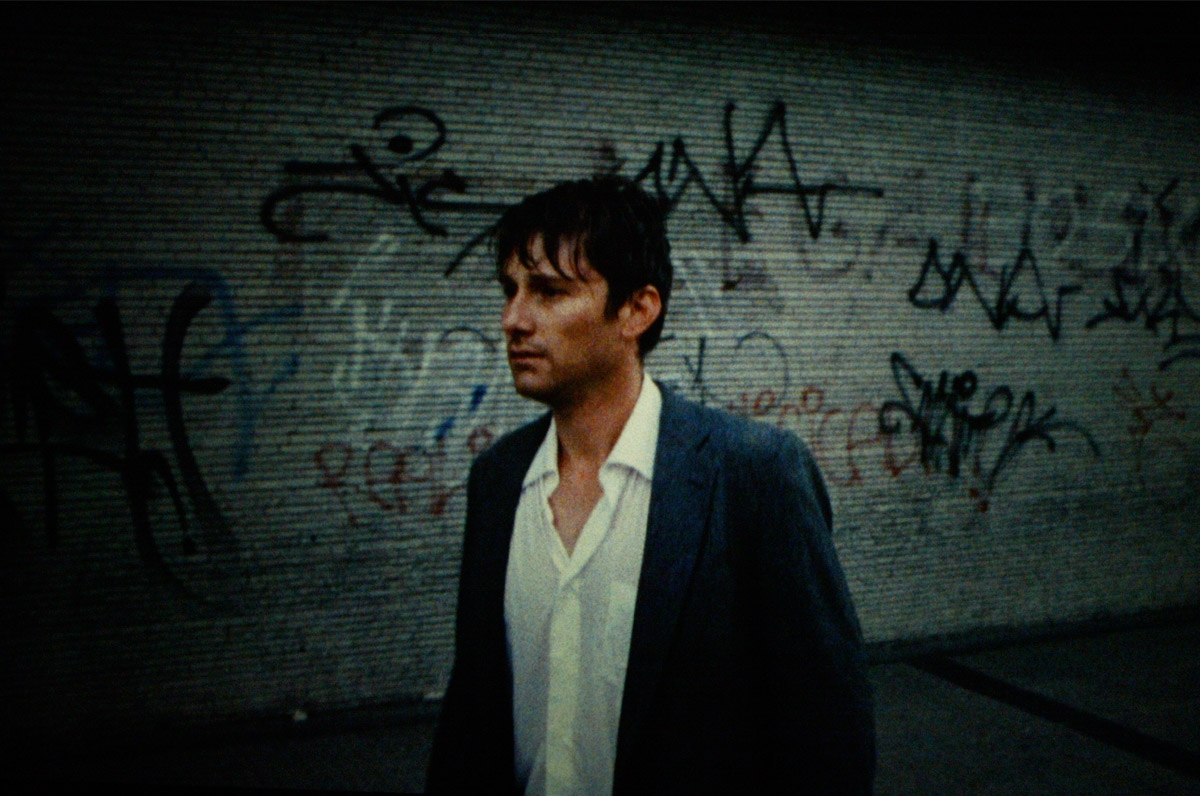A young Taiwanese man is standing on some steps in a busy part of a city. Dressed casually, with a camera strung over his shoulder, he doesn’t interact with the people passing him, who in turn pay no heed to him either. But I’m getting distracted… out of the corner of my eye two men are undressing against a white backdrop in a hammy, stylised drama. Silently they look at each other. By the time one of them is pointing at the other’s groin, it’s my turn to completely ignore the boy with the camera in the other film.
The works – the first is All the Others (2011), by Hou Chien Cheng, a slow, neat film about the alienation and converse freedom of the city; the second is The End of Time (2013), by Lebanese artist Akram Zaatari, a portrait that isolates and explores the visual language of desire – are part of the exhibition element of Videobrasil, an open-submission biennial festival predominantly focused on moving-image work that takes place in São Paulo. In a show like this, despite the curators’ use of open-fronted booths to separate the works, visual contamination and distraction on the viewer’s part is inevitable. If this sounds like a criticism – and perhaps it should be – it is not. The visual noise of the exhibition – as films from so many different locales overwhelm the senses – is something that feels exciting and indeed might be fi tting for a festival in which the organisers ensure that all the artists, who are specifically from the global south (a stretched definition of the Southern hemisphere that includes the Middle East and Eastern Europe – basically, and happily, anywhere off art’s traditional power axis of North America and Western Europe), are present on the opening days, housing them in the same hotel as the bevy of curators and critics in attendance, and involving all concerned in a lecture and discussion programme.
Questions of communication and locale dominate the festival’s cinema programme too, and if one were to tease out a uniting interest in the disparate fi lms presented, it concerns questions of social (as opposed to capital) globalisation. On the one hand, there are works that to me, a British reviewer, highlight the ‘otherness’ of the culture that fed their production: Chilean artist Enrique Ramírez’s sensual, opaque film Brisas (2008) for example, which sees the suited artist, soaking wet, walk through the streets of Santiago to the country’s government seat, La Moneda; or Rabeca (2013), Brazilian Caetano Dias’s 71-minute stylised portrait of a ragged fiddler wandering the roads and villages of the remote northeast of Brazil. These deal with distinctly local ruminations on politics, traumas and histories of the respective artists’ homelands (Ramírez’s film is gorgeously, brilliantly manipulative; Rabeca, however, strays into a clumsy strain of exoticism).
By comparison, the standout film of the festival is Iván Marino and Aya Eliav’s The Day You Arrived in Buenos Aires (2012), a kind of up-and-down love story between Marino, who is Argentine, and his Israeli girlfriend, Eliav, told through the Skype calls they made to each other from their respective home countries (having apparently met at the 2011 Videobrasil) and a combative interview with the now pregnant Eliav. It’s a work that, while admitting cultural differences (their obvious frustration at not quite being able to express themselves properly in their shared second language of English, for example), seeks – perhaps mirroring the wider festival’s mission – to celebrate postnationalism, migration and, without being trite, humanity.
This article originally appeared in the January & February 2014 issue.
